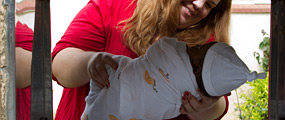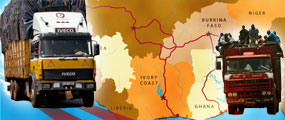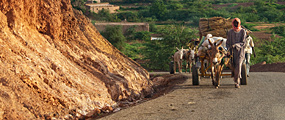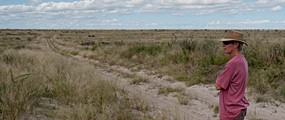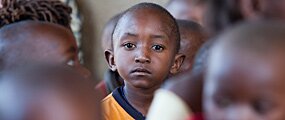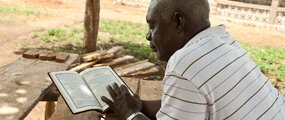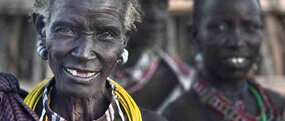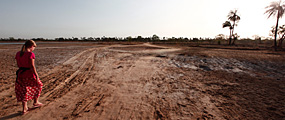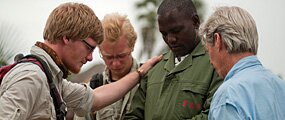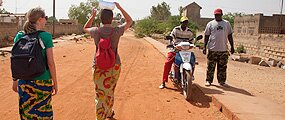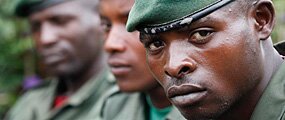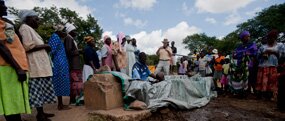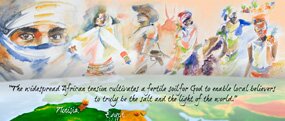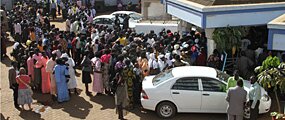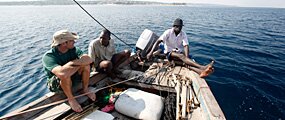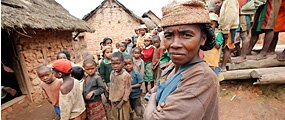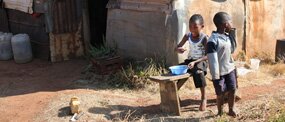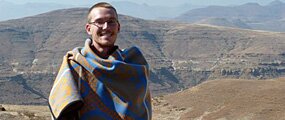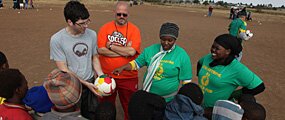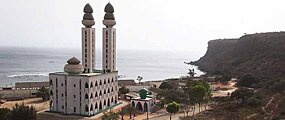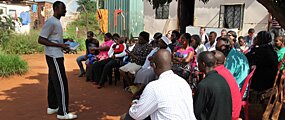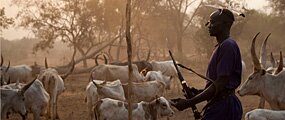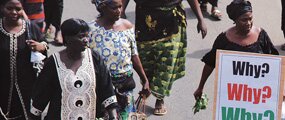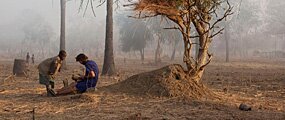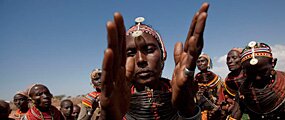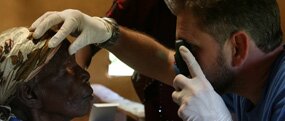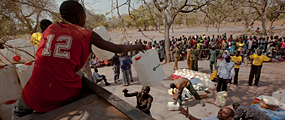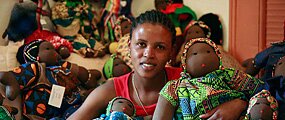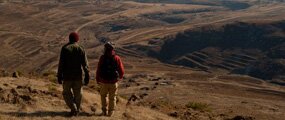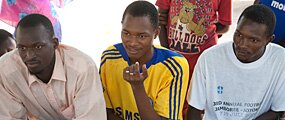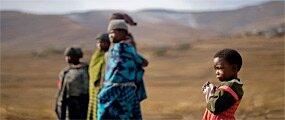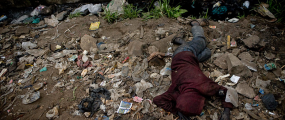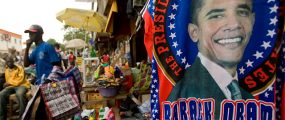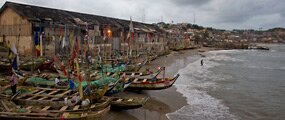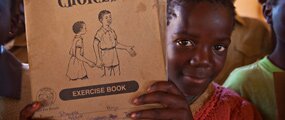The Ends of the Earth
Posted August 4, 2010
EASTERN NIGER – It’s a lot like the days when Jesus walked the earth.
People reside in simple mud structures without electricity or plumbing. They ride donkey carts down dirt paths, cook over open fires, and farm using rough-hewn tools.
In eastern Niger, it’s easy to forget you’re in the 21st century. In fact, it’s easy to forget the rest of the world even exists.
“When [a colleague] came out here, he said: ‘I’ve seen it — the Gospel has gone to the ends of the earth now. Jesus is coming back,’” laughs IMB missionary Laura Sharpe, who’s ministered in the area since late 2009.
Laura and her husband, Greg, lead a team of young missionaries working among the Hausa, the largest ethnic group in Africa and the fourth largest Muslim group in the world.
The six missionaries, all under age 33, live in small towns that are a 12-14 hour drive from Niger’s capital city, Niamey.
The dusty strip of pavement leading to their towns is narrow and filled with potholes. Along the roadside, turbaned men in robes lead camel trains through the sand. Except for the occasional isolated village, there’s not much but desert.
It really does feel like you’re driving to the ends of the earth.
“They’ve never seen a Christian, they’ve never heard a Christian pray,” Laura says of the Hausa people in the area. “… Who wants to drive 14 hours down a dusty, dirty road? The Gospel hasn’t made it here yet. That’s why we have to be here.”
Before the Sharpes and their two children arrived, there were no missionaries or evangelical churches in their town. A small group now meets for weekly worship in their yard, and the Sharpes also minister in several villages outside the town. Greg says the eventual goal is to see Christ shared in all 245 villages in the area.
While the spiritual famine in eastern Niger is evident – less than 1 percent of 28 million Hausa are followers of Christ — more often people are focused on physical hunger and pain. Greg says this region of Niger is hardest hit by famine and other disasters.
Niger consistently ranks as one of the poorest, least-developed nations on earth. Year after year, inconsistent rains lead to failing crops and widespread hunger. This year an estimated 80 percent of Nigeriens (nearly 12 million people) face food insecurity, meaning they have as few as 10 days of food supplies. Save the Children estimates as many as 400,000 children in Niger are facing starvation.
“People constantly come to us [with] medical needs,” says Brittany Breedlove of Gunter, Texas, who serves in a town a couple of hours away from the Sharpes. “My most consistent ministry right now is probably being able to build relationships and share with those people whom we have taken to the doctor and helped with health needs.”
On days Laura is home, her yard is filled with 25-50 women asking for food, medicine and prayer, often for health concerns. She prepares a mixture of corn, beans, milk powder, sugar and oil to give mothers with malnourished children.
Laura says she now has a better understanding of New Testament passages in which Jesus criticized the crowds, because He recognized their interest was in the food He provided, not the words He spoke.
“Some days [I think], ‘Y’all don’t care at all about Jesus, you just want beans,’” admits Laura, who grew up in Birmingham, Alabama. “But I feel like if I separate it and say, ‘I’m only going to share about Jesus,’ to a woman who has a dying child on her back, then am I really sharing Jesus?”
She continues: “I tell them: ‘I’m not here to give you food, I’m not here to give you medicine; I’m here to tell you about Jesus. But because I have a Savior in Jesus I have a heart to help you.’”
The Hausa people are starting to respond to these messages of love. Some say they want to follow Christ but quickly fall away, yet, says Laura, “We have six that I would say are truly, truly believers.” A handful of others are sincerely seeking. In Brittany’s area, seven new believers are studying the Bible.
“The Lord’s really been working and people have been very receptive, which is neat because the Hausa, especially in this region, have a history of being very cold to the Gospel,” explains Greg, whose hometown is Falls Church, Virginia.
Like many people in western Africa, the Hausa adhere to Islam, African Traditional Religion or a mixture of the two. Many missionaries can work years among African Muslims without seeing a single convert.
Laura admits she does get lonely as she ministers in such a difficult area. At times she doesn’t speak English all week except at home, and even her 4-year-old son sometimes speaks more Hausa than English. But her isolation from others like her forces Laura to build closer relationships with Hausa women.
“Sometimes I just go and sit with the nationals, not necessarily to share a [Bible] story … but just to have a friend,” she says.
Although the work gets lonely and tiring, there are definitely rewards.
“It’s exciting to be the very first person to share the Gospel with someone,” says Laura. “Not everyone gets that opportunity, to be the first person to tell someone about Jesus, and that’s cool.”
To learn more about the Hausa people and IMB ministries among them, visit Hausa People.
To learn how you can meet needs in impoverished areas of the world, visit WorldHungerFund and .
Melanie Clinton is a designer and editor for IMB. She has lived and worked in five African countries.

